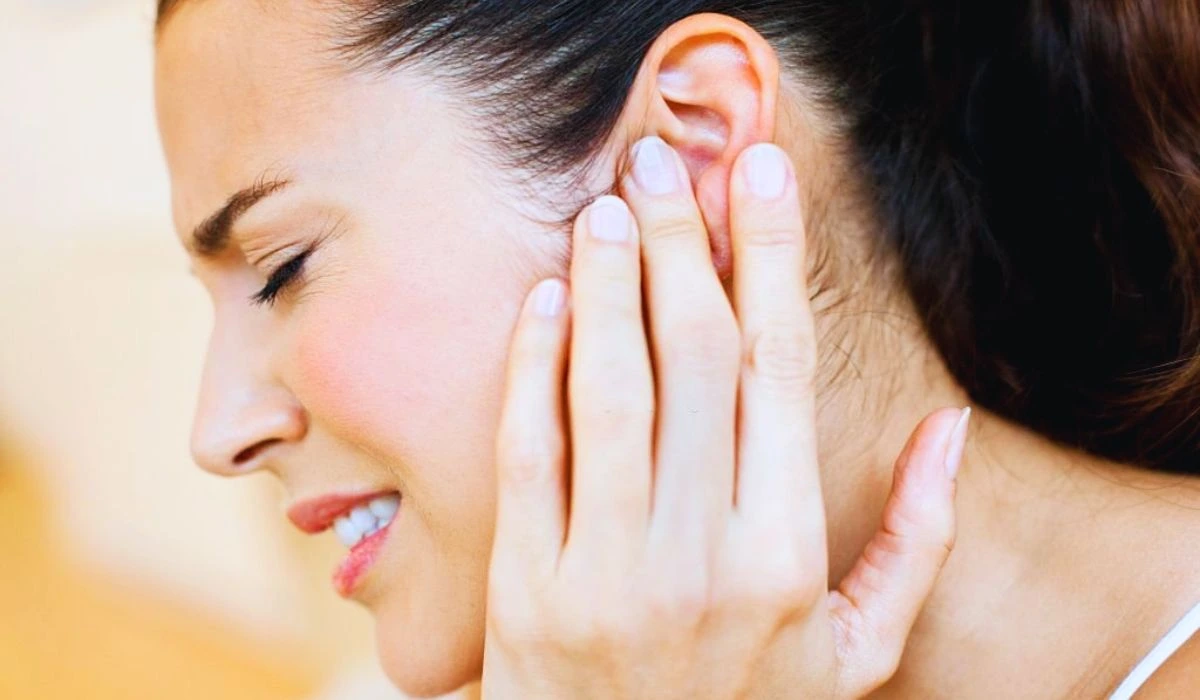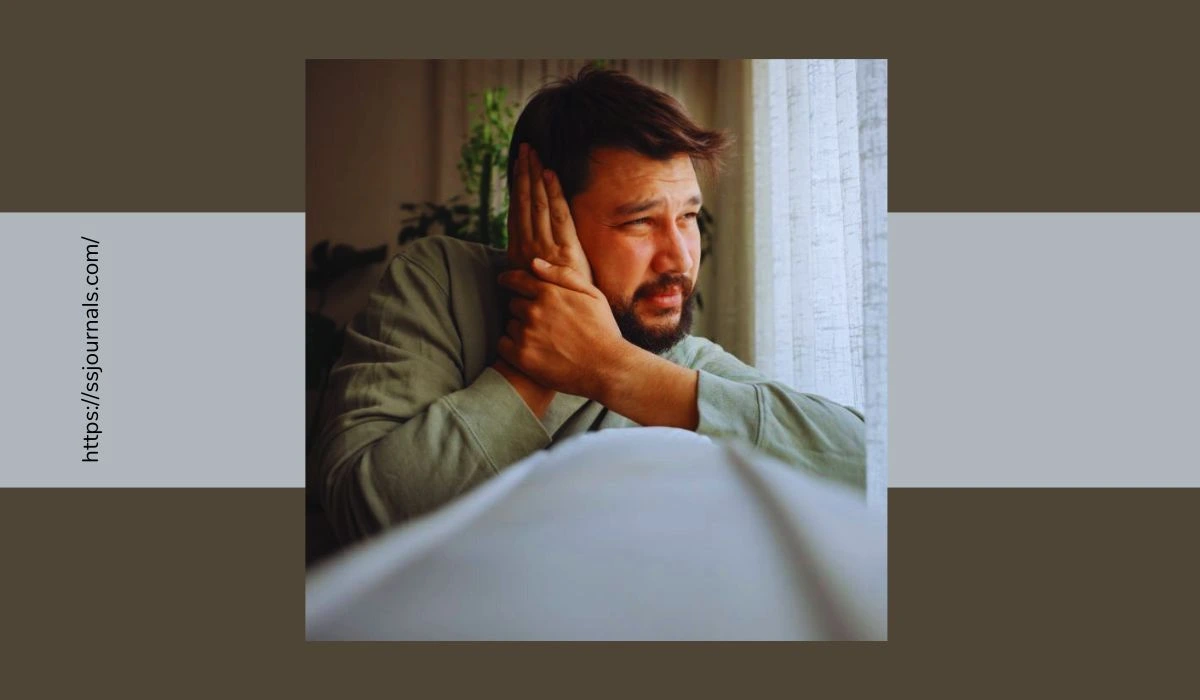Allergies are very common in adults, with about 50 million Americans suffering from various types of allergies each year. Allergies occur when the immune system overreacts to a foreign substance that is typically harmless. This overreaction leads to an allergic reaction with symptoms like sneezing, runny nose, watery eyes, etc.
In some cases, allergies can also cause ear pain and discomfort in adults. Ear pain is not a direct symptom of allergies but can sometimes occur as a secondary effect of allergic inflammation in the ears or eustachian tubes. In this article, we will discuss the most common allergies in adults, if allergies can cause ear pain, and how to prevent allergy-related ear pain.
Most Common Allergies In Adults

The most common allergies in adults include:
- Seasonal allergies – Also known as hay fever or allergic rhinitis, seasonal allergies are caused by pollen from trees, grasses, weeds, etc. Symptoms include sneezing, stuffy nose, itchy eyes, and sore throat.
- Food allergies – Allergies to certain foods like peanuts, tree nuts, shellfish, eggs, milk, etc. Food allergy symptoms can range from mild to severe and life-threatening.
- Pet allergies – Pet dander, hair, and saliva can trigger allergic reactions in people. Symptoms include coughing, sneezing, and rashes after contact with pets.
- Dust mite allergies – Dust mites are microscopic bugs found in bedding, carpets, furniture, etc. Exposure causes nasal congestion, skin irritation, and wheezing.
- Mold allergies – Exposure to mold spores from damp areas can cause runny nose, eye irritation, wheezing, and skin rash in allergic individuals.
- Medication allergies – Antibiotics like penicillin, and NSAIDs like ibuprofen, etc. can trigger allergic reactions in some adults.
Also Check: Using Hydrogen Peroxide For Ear Wax Removal: What You Need To Know
Can Allergies Cause Ear Pain In Adults?
Allergies do not directly cause ear pain or earaches in adults. However, allergies can lead to inflammation and congestion in the ears and eustachian tubes, which may result in clogged ears, pressure buildup, and secondary ear pain. Here are some ways allergies can indirectly cause ear discomfort:
- Swelling of eustachian tubes – These tubes connect the middle ear to the nose/throat. Allergy inflammation can cause swelling and blockage of the tubes. This traps fluid and air in the middle ear and prevents drainage, leading to pressure buildup and pain.
- Fluid accumulation in the middle ear – Congested eustachian tubes can restrict fluid drainage from the middle ear, allowing allergy-induced fluids to accumulate and cause ear pain.
- Ear infections – Allergy swelling obstructing the eustachian tubes allows bacteria/viruses to grow and cause ear infections like otitis media, which is characterized by severe ear pain.
- Sinus pressure – Sinus congestion from allergies can create pressure on the inner/middle ear structures, leading to referred ear pain.
So while allergies themselves don’t directly cause earaches, the secondary consequences of allergic inflammation like eustachian tube dysfunction, fluid buildup, and infections can definitely result in ear pain for some adults.
How To Prevent Ear Pain Caused By Allergies In Adults
To avoid ear pain that stems from allergies, adults can take these preventive measures:
- Nasal sprayTake antihistamines to reduce inflammation and congestion from allergic reactions. Oral antihistamines like Zyrtec, Claritin, Allegra can help. Nasal sprays like azelastine or olopatadine can also decrease swelling.
- Use nasal saline sprays to keep nasal passages moisturized and wash out allergens. Help prevent congestion and stuffiness.
- Try decongestants like sudafed to relieve swelling in the nasal/eustachian tubes and improve drainage. Can help prevent fluid buildup and pressure in the ears.
- Get allergy shots or immunotherapy to decrease sensitivity to allergens over time.
- Avoid triggers like pollen, dust mites, molds, pet dander, etc. that exacerbate allergies.
- Treat underlying conditions like asthma and chronic sinusitis that make allergies worse. This can reduce inflammation affecting the ears.
- See a doctor promptly if you suspect an ear infection, which requires antibiotics. Don’t let it linger.
- Consider eustachian tube procedures if they are dysfunctional. Balloon dilation can improve tube drainage and function.
With proactive allergy management and prompt treatment of any secondary infections, most adults can avoid allergy-related ear pain and discomfort.
Read More: How To Treat Ear Eczema Naturally? Soothe Symptoms Naturally – Here’s How
Conclusion
While allergies themselves do not directly cause ear pain, they can lead to inflammation, congestion, and fluid accumulation that results in ear pressure, infections, and pain for some adults. Managing allergies properly with medications, avoiding triggers, and treating any resultant infections can help prevent this bothersome symptom.
Adults with chronic or severe ear pain related to allergies should see an allergist and ENT specialist for appropriate treatment. With a multi-pronged approach, allergy-related ear discomfort can be minimized and controlled.
FAQ
A: The most common cause is inflammation and swelling of the eustachian tubes from the allergic response, leading to congestion and fluid buildup in the middle ear and resultant ear pain.
A: Yes, oral antihistamines can reduce inflammation in the ears/eustachian tubes and decrease congestion, thereby preventing pressure buildup and ear pain.
A: Yes, allergies can allow fluid accumulation and bacterial/viral growth leading to ear infections like otitis media which causes severe ear pain.
A: Yes, people with chronic seasonal allergies are more likely to experience recurrent ear pain, discomfort, and infections, especially during peak allergy season.
A: Allergy shots/immunotherapy over 3-5 years can desensitize you to allergens and provide long-term relief and prevention of associated ear pain for many people.

